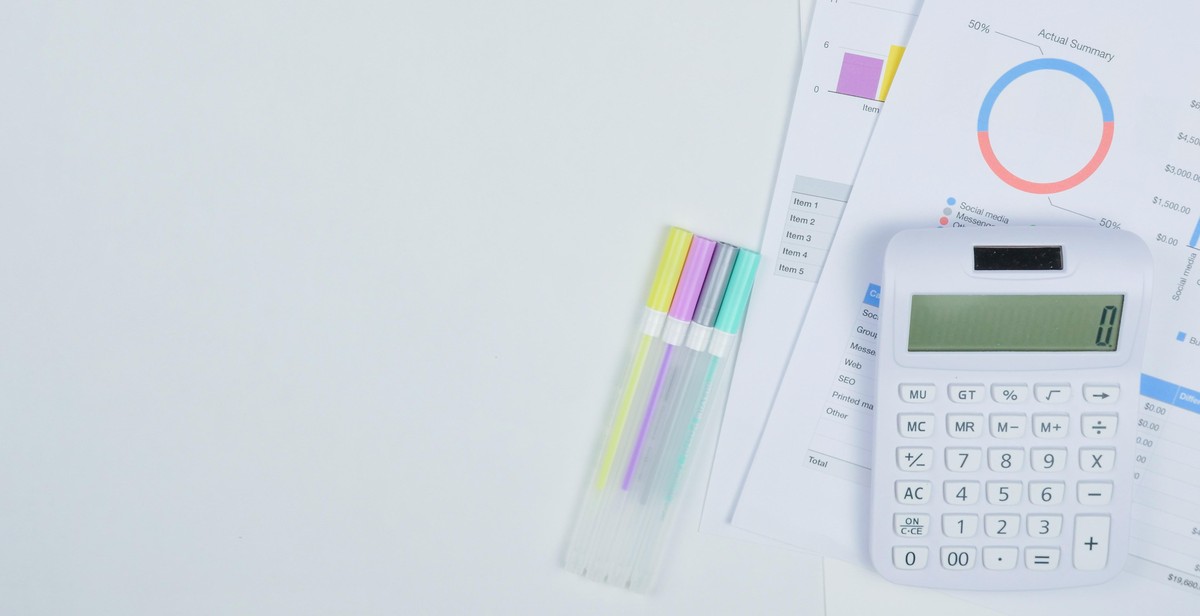How to Create a Budget and Track Your Expenses Effectively
Creating a budget and tracking your expenses may not be the most exciting activities to do, but they are essential for achieving financial stability and success. A budget is a financial plan that helps you manage your money effectively by tracking your income and expenses. It allows you to identify areas where you are overspending and make adjustments to ensure that you are living within your means.
Why Creating a Budget and Tracking Your Expenses is Important
Creating a budget and tracking your expenses is crucial for many reasons. Firstly, it helps you to prioritize your spending and allocate your resources to the things that matter most. This means that you can avoid overspending on unnecessary items and focus on the things that will help you achieve your financial goals.
Secondly, tracking your expenses allows you to identify areas where you can cut back on spending and save money. This is especially important if you are looking to pay off debt, save for a down payment on a house, or build an emergency fund.
Lastly, having a budget and tracking your expenses can help you to avoid financial stress and anxiety. By knowing exactly how much money you have coming in and going out each month, you can plan for the future and avoid unexpected financial surprises.
Overall, creating a budget and tracking your expenses is an essential part of achieving financial success. In the following sections, we will explore some tips and strategies for creating an effective budget and tracking your expenses.

Step 1: Assess Your Income and Expenses
Creating a budget and tracking your expenses effectively requires a thorough understanding of your income and expenses. This step is crucial in helping you identify your financial habits and determine where you need to cut back or increase spending.
Understanding Your Income
The first step in assessing your income is to determine how much money you earn each month. This includes your salary, any bonuses or commissions, and any other sources of income. Once you have a clear understanding of your monthly income, you can begin to allocate your funds accordingly.
Tracking Your Expenses
Tracking your expenses is essential to creating a budget that works for you. It allows you to identify where your money is going and make adjustments as necessary. Start by keeping track of all your expenses for a month, including bills, groceries, entertainment, and any other expenses. You can use a budgeting app or spreadsheet to make this process easier.
Categorizing Your Expenses
Once you have tracked your expenses for a month, categorize them into different groups such as housing, transportation, food, entertainment, and savings. This will help you see where you are spending the most money and identify areas where you can cut back. It is important to be honest with yourself and identify areas where you may be overspending.
| Expense Category | Percentage of Income |
|---|---|
| Housing | 30% |
| Transportation | 10% |
| Food | 15% |
| Entertainment | 5% |
| Savings | 20% |
| Other | 20% |
Once you have categorized your expenses, you can use this information to create a budget that aligns with your financial goals and priorities.

Step 2: Set Financial Goals
Before you start creating a budget and tracking your expenses, it’s important to set financial goals. Financial goals help you stay focused on what you want to achieve and give you a clear direction on how to get there. There are two types of financial goals: short-term goals and long-term goals.
Short-term Goals
Short-term financial goals are those that you want to achieve within the next year or so. These goals can be anything from saving up for a vacation to paying off credit card debt. When setting short-term goals, it’s important to be specific and realistic. Identify exactly what you want to achieve and make sure it’s something that can realistically be accomplished within the next year.
Short-term goals can also be broken down into smaller, more manageable goals. For example, if your goal is to pay off credit card debt, you can break it down into smaller goals such as paying off a certain amount each month or paying off one credit card at a time.
Long-term Goals
Long-term financial goals are those that you want to achieve over a longer period of time, usually five years or more. These goals can be anything from saving for retirement to buying a house. When setting long-term goals, it’s important to think about the bigger picture and what you want to achieve in the long run.
Like short-term goals, long-term goals should also be specific and realistic. Identify exactly what you want to achieve and make sure it’s something that can realistically be accomplished within the time frame you’ve set.
Setting financial goals is an important step in creating a budget and tracking your expenses. It helps you stay focused on what you want to achieve and gives you a clear direction on how to get there.

Step 3: Create a Budget
Now that you have a good understanding of your expenses and income, it’s time to create a budget. Budgeting is an essential part of financial planning and can help you achieve your financial goals.
Budgeting Methods
There are various budgeting methods that you can use to create a budget. The most popular ones are:
- Zero-based budgeting: This method requires you to assign every dollar of your income to a specific category, ensuring that your income minus expenses equals zero.
- 50/30/20 budgeting: This method suggests allocating 50% of your income to necessities, 30% to wants, and 20% to savings and debt repayment.
- Envelope budgeting: This method involves dividing your cash into envelopes labeled with specific expenses and using only the money in each envelope for that expense.
Choose a budgeting method that works best for you and your financial situation.
Creating a Realistic Budget
When creating a budget, it’s essential to be realistic and honest about your expenses and income. Here are some tips to create a realistic budget:
- Track your expenses for a few months to get an accurate idea of your spending habits.
- Include all your expenses, including fixed expenses like rent, utility bills, and variable expenses like groceries and entertainment.
- Set realistic goals and priorities for your budget, such as saving for a down payment on a house or paying off debt.
- Be flexible and adjust your budget as needed to accommodate unexpected expenses or changes in income.
Creating a budget can be challenging, but it’s a crucial step in managing your finances effectively. Stick to your budget, and you’ll be on your way to achieving your financial goals.
![]()
Step 4: Track Your Expenses
Tracking your expenses is an essential part of creating and maintaining a budget. It helps you identify areas where you are overspending and where you can cut back. Here are some tips for tracking your expenses effectively:
Choosing a Tracking Method
There are several ways to track your expenses, and the right method for you will depend on your personal preferences and habits.
- Pen and Paper: If you prefer a hands-on approach, you can track your expenses using a pen and paper. Simply write down every expense you make and categorize them accordingly.
- Spreadsheet: A spreadsheet is another popular way to track expenses. You can create a simple spreadsheet using Microsoft Excel or Google Sheets and update it regularly.
- Budgeting Apps: There are many budgeting apps available that can help you track your expenses. Some popular options include Mint, PocketGuard, and YNAB.
Sticking to Your Budget
Tracking your expenses is only effective if you use the information to make changes to your spending habits. Here are some tips for sticking to your budget:
- Review Your Spending: Take a look at your expenses regularly to see where you can cut back. Look for areas where you are overspending and find ways to reduce those expenses.
- Be Realistic: Make sure your budget is realistic and achievable. If you set unrealistic goals, you are more likely to give up and overspend.
- Stay Motivated: Keeping track of your progress can help you stay motivated. Celebrate your successes and use any setbacks as motivation to do better next time.
| Expense Category | Amount Spent |
|---|---|
| Groceries | $300 |
| Entertainment | $150 |
| Transportation | $100 |
By tracking your expenses and sticking to your budget, you can take control of your finances and achieve your financial goals.

Step 5: Review Your Budget Regularly
Creating a budget is just the first step towards financial freedom. To ensure that you stay on track, it is important to regularly review and assess your progress. This will not only help you identify any areas where you may be overspending but also help you make necessary adjustments to your budget plan.
Assessing Your Progress
It is important to assess your progress regularly to ensure that you are on track towards achieving your financial goals. Review your budget plan at least once a month to see how you are doing. Look at your actual spending and compare it to your budget plan. This will give you an idea of how well you are sticking to your plan and if there are any areas where you need to cut back.
You can also use budgeting apps and software to track your spending and monitor your progress. These tools can help you see where you are spending your money and identify any areas where you may be overspending. Some popular budgeting apps include Mint, YNAB, and Personal Capital.
Making Adjustments
If you find that you are overspending in certain areas, you may need to make adjustments to your budget plan. This could mean cutting back on certain expenses or finding ways to increase your income. Look for ways to reduce your expenses, such as negotiating bills, cutting back on eating out, or canceling subscriptions you don’t use.
Remember, your budget plan is not set in stone. It is important to be flexible and make adjustments as needed. Review your budget regularly and make changes as necessary to ensure that you stay on track towards achieving your financial goals.

Conclusion
Creating a budget and tracking your expenses can be a daunting task, but it is essential for financial stability and peace of mind. By following the steps outlined in this article, you can create a budget that works for you and keep track of your expenses with ease.
Remember these key takeaways:
- Start by determining your income and expenses.
- Identify areas where you can cut back on expenses.
- Use budgeting tools or apps to help you stay organized.
- Track your spending regularly and adjust your budget as needed.
Once you have a budget in place, you can begin to take control of your finances and work towards achieving your financial goals. Whether you want to pay off debt, save for a down payment on a house, or simply build up your emergency fund, creating a budget is the first step towards making your financial dreams a reality.
So, what are you waiting for? Start budgeting today and take control of your financial future!
| Resources: | Mint | EveryDollar | Personal Capital |
